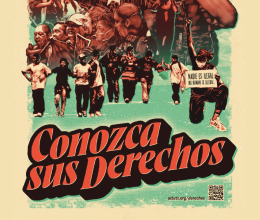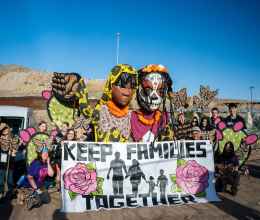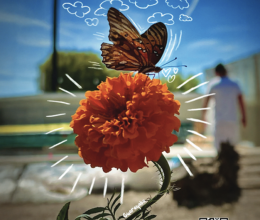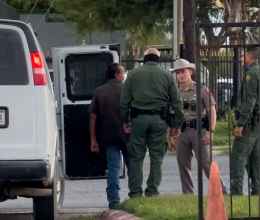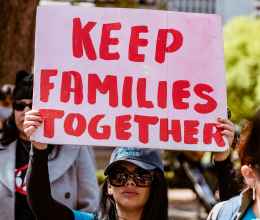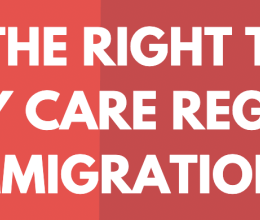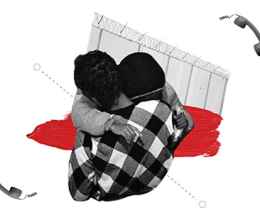
By the end of Trump’s term in office, the administration had made it almost impossible for migrants to seek asylum. Almost 70,000 migrants who left their homeland out of fear for their safety were forced to wait outside the U.S. border under the Migrant Protection Protocols (MPP). Another 200,000 people were expelled altogether. These are the signs of a collapsed immigration system, where few are afforded the right to apply for asylum.
In February, the first signs of restoring the asylum system appeared as the current administration started winding down MPP. This is a significant step in fixing a broken asylum system. The ACLU of Texas expects the Biden administration to work toward a new path for asylum seekers and immigrants that doesn’t leave so many desperate people behind.
Staff members Mike Seifert and Lorena Soto met families who crossed on the first day that MPP ended in Brownsville and El Paso. Here are the stories they witnessed:
Brownsville, as told by Mike Seifert
Blanca, a 19-year-old Central American woman, had led her family out of the misery of the MPP camp in Matamoros, Mexico, through Border Patrol processing, and was now walking them into the Brownsville, Texas bus station.
“We made it!” she texted me, “We are here!”
And so they were — a family of five, standing safe and sound, if hungry and tired, on U.S. soil.
This was the second time the family had been in the United States. Back in January, she and her family had crossed the Rio Grande near Eagle Pass, Texas. A day later, while in Border Patrol detention, she went into labor. She bore a child, and, shortly afterwards, she and her three-day-old American child and the rest of her family were “expelled” into Piedras Negras, the sister city to Eagle Pass.
She became an ACLU of Texas client, and we stayed in touch as she made her way to Brownsville as a part of the Biden administration’s rollback of MPP. Now they needed to travel from Brownsville to Boston, they needed something to eat and a place to sleep.
The family had tested negative for the virus. They were masked up and had face shields, and were ready to complete their journey.
A migrant welcoming committee arranged for the family to spend the night in a motel room. Local activists purchased them food, and I would print out the airline tickets that an organization named Together and Free would buy for them. I told them that we were so glad to meet them, at last, in person, and that they were here.
El Paso, as told by Lorena Soto
I joined other organizers at the bottom of the international bridge on the Mexico side, surrounded by reporters waiting for the first migrant group to arrive. The days leading up to the release in El Paso were a whirlwind of decision-making and action from some incredible, local organizations trying to ensure a warm welcome. Now everything went quiet. Then, the first migrants appeared ready to make that walk over the bridge.
I followed them back through the port of entry. Community organizers and U.S. immigration lawyers cheered for each one of the 25 migrants as they arrived, eager to get them on the bus and on their way to a warm meal and safe space at the Annunciation House. I asked one woman if she would like help with her heavy suitcase. She responded, “Ayudame con mis niños.” Help me with my children.
The oldest of her two children is no more than 7-years-old. Her son shouted through a Spider-Man face mask for his mom to catch up with us. I leaned down and told him. “Nos vamos juntos.” We will cross together.
And we did. I had a child holding each hand and their mom close behind. As we got closer to the bus the little girl tugged on my hand. She asked me, through her pink mask, if we are in the United States yet. Tears welled up when I replied, “Sí mija, estamos en los Estados Unidos.”
I felt encouraged seeing them here. But many other migrants might never receive the chance. We must continue to push for an immigration system that truly guarantees fair and humane treatment for all seeking asylum.
